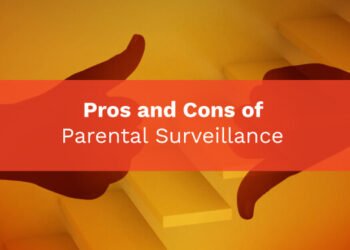Children are busy in the virtual world. With much time shredded online, they have virtual friends. While your kid is tapping thumb and ears are covered with a microphone, you have no idea what they are listening to or doing. It is difficult for kids to detect who talks genuinely and who is chatting with an ill intention. With that, it is difficult for the detection of online predators by parents.
It is hard to know who has put on the mask of predation. The sham mask for predation gets firmness from the virtual world. There can be fake accounts, fake photographs, Multiple people accessing one account sometimes unborn persons exist on social media. The intensity of such acts online is deep.

The use of the internet to manipulate others for personal benefit is not rare. With that, the predators seek sexual content by luring or friendliness. These acts include sexual abuse, child pornography, seeking photographs, sexual solicitations, and many more.
Children are innocent, and it is hard for some to be social. It is unimaginable for us to believe that they can cope up with everything that happens online. They are aloof and emotionally dependent so, parents need to know the truth about online predation. You can help your children by telling them about these interruptions beforehand.
The use of social media applications and sites has been misused by online predators. Chatting and communication applications are where they seek for children to target. As a parent, you should keep track of what application your child is using on the internet like Discord. Parents may not know about each and every application as there is a lot out on the internet on a daily basis.
Some Queries Regarding Online Predators From Parents
Here are a few questions with answers and statistics as truth.
Problem 1: Are all the people who talk to your children predators? No, all the people who chat with your kid online are not predators. But if they ask for something unusual: sexual things, then they are predating.
Solution:
You cannot directly ask your child to stop talking to people online. There are certain things they should know, and you should explain the following to them:
- Let them know that some people might ask kids for sexual content. They might start with a selfie-and reach up to asking for private pictures.
- If someone you know online asks to meet in real then ask them to inform you.
- If anybody asks for something sexual, make them understand that it is illegal and tell them to report to you immediately.
After knowing all these, your children pay attention to the things that can happen online. They are prepared and are not scared to report back to you.
Truth:
Some truths about online predation include:
- The University Of New Hamshire conducted a study called as Youth Internet Safety Study(YISS). The study revealed that in the year 2000-2010, the rate of online sexual solicitations declined by fifty-three per cent. In 2010, only nine per cent were victims of predation online.
- YISS also concluded that it is usually kids who put pressure on other kids for such acts.
Problem 2: My child is busy on the phone most of the time playing games. How can I keep track of who he’s talking to or what he’s doing?
Solution:
It is impossible to keep an eye on your child’s phone or pc all the time. The best thing to do is to install parental control devices such that you can know what they are doing online. Online games carry risks and are places where there is a lot of virtual interactions.
- Keep a note of online games they play after asking them.
- Install parental control apps to know about their chats with other people on social media.
- Limit time to play online games.
- Keep notice of habits and changes.
- Be wary of unwanted content on their phones or in the download section.
- Tell them to avoid giving extra information to strangers.
- Persuade them to change the game setting into a private mode such that interactions with strangers are fewer.
Truth:
- The study from the New England Journal Of Public Policy concluded that: kids communicate with predators in online chat rooms, inside game chats, and social media.
- Games like Roblox, AnimalJam have features to stop inappropriate comments within the game chat.
- Your children should not play adult games.
- They should avoid adult sites and 18 plus content.
Problem 3: How is predation possible? How disguised are they?
Solution:
Your kids may not tell you everything. Some are disguised as teens but end up being desperate adults. But it is essential to make them understand rules.
- Tell them that it is illegal if someone asks them to send nude pictures.
- The nude pics of a minor when spotted, then the person will get punished.
- Tell them to escape the trap of emotional manipulation.
- If someone asks them to pose for pictures, then they should report to you immediately.
Truth:
- Predators are slow and prey and stay in contact for a longer time and ask for sexual acts. The trust issues involved make it difficult for kids to say no.
- Some are quick and directly ask for such pictures and vanish as soon as your child denies to obey.
- Once they send a picture or anything sexual, the predators ask for it again and again.
- It is not always that creepy adults act like kids and prey. According to statistics, only five per cent of predators prey act of a kid. They are disgusting adults that attack teenagers and manipulate them psychologically.
- Kids at time do not even know its online predation and find sexual content normal as influencers of social media portray it as something normal.
Problem 4: If my kid has experienced something similar and does not open-up. How do we know what is going on?
Solution:
The most vulnerable age group is that of teenagers for which you should notify them about cybersecurity beforehand. They are growing physically and are new to the development of the body. Their emotions are extreme, and the feeling of not being understood is common among teenagers.
- If your kid is hiding something or behaving strangely, then it could be something.
- Focus on your kid’s habit and whom they meet. Make sure you know all of your kid’s friends and who they interact with.
- If you find adult content on their pc, then it could be the reason.
- If you find your kid’s inappropriate pictures inside their cellphone, then it needs addressing. Ask them about it.
Truth:
- They wish to find someone of their age to converse with.
- They seek attention and need to feel loved.
- Curiosities might trigger, and they are seeking answers.
- Peer pressure could be a reason. The sexual content is so rampant that your kid might find it natural.
- Your kid might be meeting the predator. Remember to check gifts or flowers, or anything you did not buy for them.
Problem 5: If I am sure my kid is a victim, then what to do?
Solution:
The first thing is not to worry about. Try to ask them what is going on. You need to understand how these predators function. If the predator is bullying online or asking for anything.
- Gather proof against the predator.
- Try to find who the person is and keep an account of the id.
- Take screenshots of chats or voice recordings.
- Inform the law enforcement to take immediate action.
Truth:
- You saw something on their phone.
- Your kid opened up about the matter.
How To Recognize Online Predators?

Getting Close To Your Kid
Online predators take time to get to know your kid. They start with a fake personality and get closer day by day. Your child is like a project to them. They get the required information from your kid and wait for the perfect time to put forward their disgusting intention.
They talk for six months or more and make a special place in your child’s heart. Your child might hide such interaction online with you. They notice the type of personality and act accordingly and do anything to be liked by your child. Your child, on the other hand, finds no one else closer than the predator.
Extracting Information
With daily chats, the predator takes information about your child’s locality, school, or house. They know almost everything about your child. Predators may be tracking or have already seen your child.
They have figured out your child’s nature and detected their softer or vulnerable part. Some might even fill up hatred about family members or society to be more likeable. This act allows them to win the trust of kids and eventually put them under a trap.
Mirroring
Online predators are excellent in mirroring your child’s emotions. If your kid shares something, then they replicate such incidents and relate to themselves. Such conduct makes your child realize there is no one like the predator. The mirroring act builds a splendid bond. This connection creates more problems as the predator is getting bolder with the lies and ill purpose.
You can recognize if the person is an online predator if he/she sounds nice, asks for personal information, asks lots of questions, stalks online, want to have conversations in private, already know things about you, always agree with you.

















